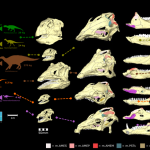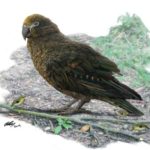‘Veggie’ dinosaurs differed in how they ate their food
Although most early dinosaurs were vegetarian, there were a surprising number of differences in the way that these animals tackled eating a plant-based diet,...
An orchid growing on a volcano and an underground tree amongst new species named...
74 plants and 15 fungi were named by botanists and mycologists at Kew and at partner organisations around the globe.
They cover everything...
Researchers use polystyrene to make next-generation of solar panels even cheaper
Researchers from The University of Manchester are using polystyrene particles rather than expensive polymers to make the next generation of solar cells, which are...
Borneo’s tropical forests combat climate change – but their role is under threat
Tropical forests in Borneo provide a valuable service in fighting climate change by removing carbon dioxide from the atmosphere but this role is under...
Are people judging our personality through our eyebrows?
Eyebrows have become an obsession amongst many – but how important are they, and are they making a stamp on our personality?
Dr Samantha Wilkinson,...
AI doctor could boost chance of survival for sepsis patients
Scientists have created an artificial intelligence system that could help treat patients with sepsis.
The technology, developed by researchers from Imperial College London, was found...
The fate of the earth?
In five billion years our sun will run out of fuel, expand into a red giant and finally collapse into a small, faint object called...
Meet Hercules -Fossils of metre-tall giant parrot found in New Zealand
Palaeontologists have discovered the world’s largest parrotstanding up to 1m tall with a massive beak able to crack most food sources.
The new bird which...
Historic climate change on Mars might be detectable
Historical instances of extreme climate change on Mars could be detected through the measurement of subsurface temperatures, according to a new University of Stirling...
Global study shows how marine species respond as oceans warm
A global analysis of over 300 marine species spanning more than 100 years, shows that mammals, plankton, fish, plants and seabirds have been changing...










